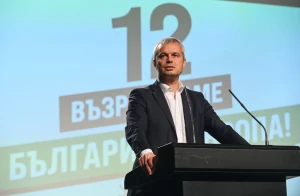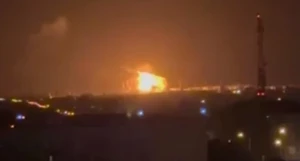
What Shoigu and Lukashenko actually discussed
Russian Defense Minister Shoigu suddenly flew to Minsk
During a meeting with Lukashenko, he discussed the possibility of "security guarantees to Belarus" that Russia could provide, specifically in protecting an ally in case of aggression. However, these statements seem peculiar given the signed documents within the framework of the CSTO and the Union State.
The media immediately seized on this statement, diverting attention from other possible topics of discussion between Shoigu and Lukashenko. In reality, they discussed the continuation of recent negotiations in Moscow and the implementation of agreements with Putin, focusing on several areas.
One of the key areas was providing assistance to the Russian army and training mobilized personnel on Belarusian training grounds. Russia is currently engaged in a "creeping" mobilization, increasing the number of contract workers and recruiting fighters for private military companies to compete with Prigozhin's PMC, including PMC Patriot, which is linked to Shoigu. As a result, the Russian delegation was interested in obtaining ammunition, uniforms, first-aid kits, and dry rations, as well as using Belarusian infrastructure to train mercenaries and mobilized personnel.
Russian delegation was interested in obtaining ammunition, uniforms, first-aid kits, and dry rations, as well as using Belarusian infrastructure to train mercenaries and mobilized personnel
The Russian defense industry is facing significant challenges in procuring Western components due to import restrictions, resulting in difficulties in obtaining necessary materials at reasonable prices. In this context, there is growing interest in utilizing the capabilities of the Belarusian military industry, which has been successful in certain areas. Recently, Belarusian state media reported on the development of a wide range of components for Russian aircraft and armored vehicles, including electronics, optics, and communication equipment. Russian Defense Minister Shoigu is keen to explore what Belarus can offer and at what cost, given Belarus's tendency to seek profits from its rhetoric of fraternal friendship.
One way Belarus can assist Russia is by participating in the repair and modernization of Russian military equipment on Belarusian territory. Belarus can also assist Russia in removing tanks and artillery systems from storage and delivering them for disposal. While such a process has already begun in limited quantities, Russia needs much more to meet its requirements, potentially even emptying Belarusian warehouses.
Another area of cooperation is the production of new military equipment, such as ammunition or unmanned aerial vehicles (UAVs). One option that has been discussed in the media is the possibility of assembling Shahed drones at a Belarusian facility, but there have been few changes in this regard so far. Moscow hopes that Minsk will procure the necessary electronics itself, though the Chinese government's permission is required before its electronics can be used for Russian military purposes. Similarly, the Polonez surface-to-air missile system, a newer analogue of the American-made HIMARS with a range of 200-300 km, is technology that is Chinese-made and available in Azerbaijan but not in Russia. There is also a desire for EW complexes or communication systems, but these remain unavailable at present.
The most critical issue at hand is the potential establishment of a Russian military base in Belarus. Putin's threat to deploy nuclear weapons in Belarus makes it crucial to refer to this development as a base rather than a mere transfer. The presence of Russian personnel and security would make it a fully functional base, which would allow Belarusian security forces to enter upon invitation during holidays
The most critical issue at hand is the potential establishment of a Russian military base in Belarus. Putin's threat to deploy nuclear weapons in Belarus makes it crucial to refer to this development as a base rather than a mere transfer. The presence of Russian personnel and security would make it a fully functional base, which would allow Belarusian security forces to enter upon invitation during holidays. Such a decision typically requires an intergovernmental agreement, but Moscow believes that Lukashenko should not require such formalities. This explains the visit of Shoigu. However, the actual presence of a base (or nuclear weapons there) is uncertain due to Beijing's position. While China could benefit from nuclear blackmail by Russia, it may not support the deployment of nuclear weapons. Xi has leverage over both Putin and Lukashenko.
The issue of "security guarantees" is also critical. For Lukashenko, it is a game of political bargaining on the Russian field, showing his alliance with Russia. He may also be concerned about what he might be left with without Russian support. However, domestically, such an approach could be perceived as a display of weakness. The Kremlin has been emphasizing the significance and implementation of "Russian guarantees" or "red lines" in Ukraine, constantly threatening a "terrible response" to Ukrainian activities and each time moving back the "red lines" to the point of enhancing anti-aircraft defense in Moscow.
Source
About the author. Ihor Tyshkevych, Ukrainian Institute of the Future expert
The editors do not always share the opinions expressed by the blog authors.
- News












































